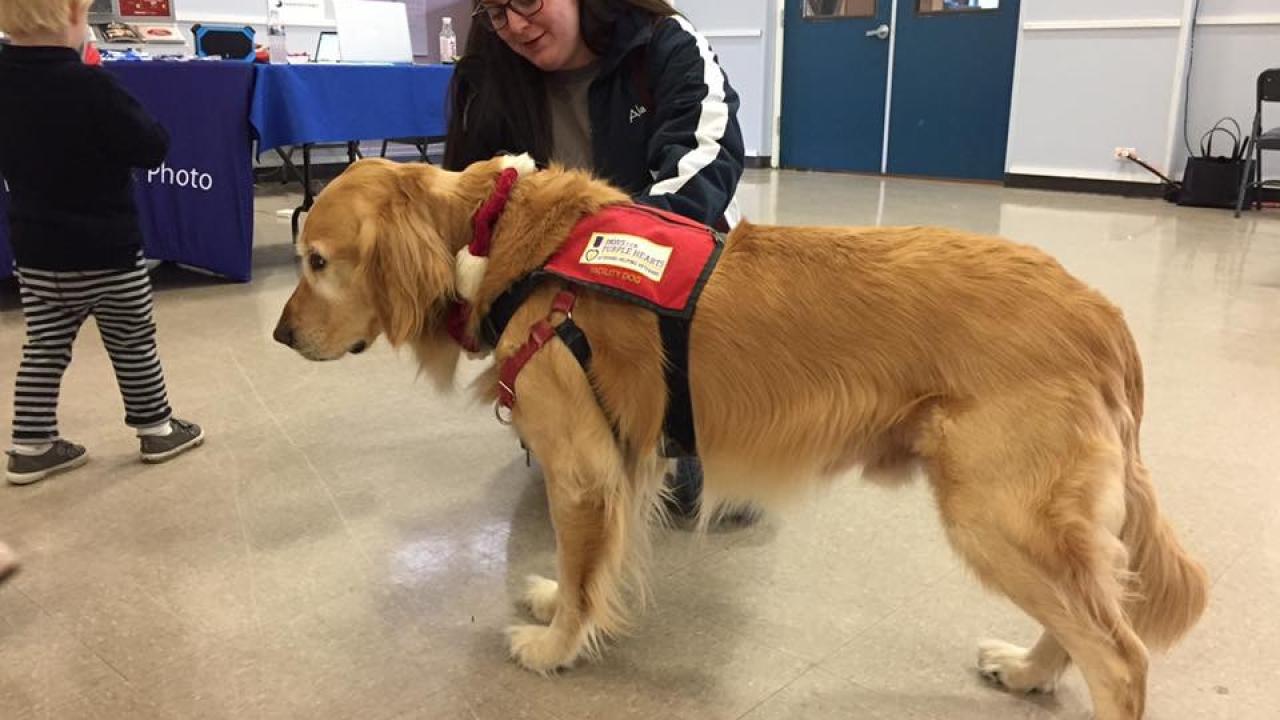
Veterans’ Therapy Dog Has His Own Battle to Overcome
Webb, an 8-year-old male golden retriever, has an important job, and many of America’s heroes rely on him every day. He was originally trained to be a service animal for a veteran with a disability, but it turned out that he wasn’t suited for individualized care. However, the Veterans Administration still saw potential in him, so now Webb serves as a therapy dog at the VA Palo Alto Health Care System – Menlo Park Division. He is charged with the mission of cheerleader, encourager, and all-around goodwill ambassador at the rehabilitation center.
About four months ago, Webb started running into things. He had trouble getting into the car and slipped on stairs. Normally comfortable around anyone, he became withdrawn and anxious around crowds. His handler knew something was very wrong and took him to the veterinarian.
Initially, Webb’s lack of vision was attributed to an incurable disease, sudden acquired retinal degeneration syndrome (SARDS), which quickly causes blindness. But when no retinal issues were revealed during another examination a few weeks later, SARDS was ruled out and neurologists looked into other causes of the blindness. An MRI of Webb’s brain revealed a mass in the region of his optic nerve. The mass was suspected to be a meningioma—a brain tumor—that was putting pressure on the optic nerve causing the blindness. Webb’s veterinarians discussed radiation therapy or prednisone (steroid) therapy to shrink the tumor.
After a month on prednisone, Webb was able to see again. Another discussion was had about pursuing radiation therapy, something Webb would likely have a good response to, based on the results of the prednisone therapy. So his handler decided to bring Webb to the UC Davis veterinary hospital for stereotactic radiosurgery (SRS), a non-surgical radiation therapy that delivers a high dose of radiation directly to a brain tumor while getting relatively small radiation dose to the brain.
SRS is administered in three doses over three days on a linear accelerator, a large device that delivers beam radiation treatments for cancer patients. UC Davis has the most advanced linear accelerator anywhere in veterinary medicine.
SRS can help control clinical signs of brain tumors – seizures, depression, difficulty walking, lethargy, and behavior changes. It can also effectively shrink the tumor for a certain period of time, giving animal owners an extended survival time with their beloved pets. Median survival times with SRS are generally 8-16 months depending on tumor type (generally 12 months for meningiomas). Without SRS, meningioma patients generally pass within 1-3 months.
Webb received three successful radiation treatments in December, and at his 3-week recheck appointment in early January, his results looked promising. He continues his steroid therapy and is being monitored closely by his veterinarians. The veterans at the rehabilitation center are happy to see him back at work, as they help each other fight on.
# # #
